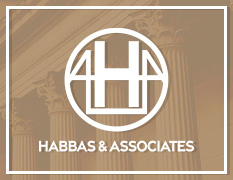When organizations engage in illicit practices or unethical behavior, it’s imperative that courageous people within those groups stand up and hold them accountable. Although California does have protections for so-called “whistleblowers,” however, employers are often quick to retaliate against those who fight wrongdoing.
If you’ve been victimized by your employer because you reported wrongdoing, you may have grounds to file a whistleblower lawsuit and pursue justice after your experiences. Of course, you will likely face considerable opposition if your employer has committed retaliation – so it’s important to understand the full scope of your rights in the state of California.
Understanding the California Whistleblower Protection Act
There is some federal legislation to protect whistleblowing as an activity, but individual states will often pass stronger legislation to protect workers from employer retaliation. That is the case in California, at least, where the California Whistleblower Protection Act covers public and private employees against the threat of retaliation.
After it was strengthened in 2014, the CWPA gained new strength for whistleblowers. It covers anyone who was acting on behalf of an employer, from independent contractors to third party consulting agencies – going far beyond most other state laws for whistleblower protections. Additionally, the civil damages can encompass a wide range of claims, and may even include reinstatement in some cases.
Here are some other requirements under the California Labor Code:
- Employers must show a comprehensive list of whistleblower laws and responsibilities somewhere in the workplace.
- Employers must allow employees to engage in protected activities, such as testifying in court or filing a discrimination complaint.
- Employers cannot discharge employees for filing a complaint or standing up against illegal activity (perceived or otherwise).
- Future employers cannot retaliate against an employee for past whistleblower complaints at other organizations.
How Do I File a Whistleblower Claim?
It’s important to note that you don’t need to have unequivocal proof of a legal violation in order to become a whistleblower. You must simply have “reasonable cause” to think that your employer was breaking the law. Regardless of the suspected violation, you retain the right to report suspicious activity to law enforcement or a government agency. This is why it’s a good idea to pursue a claim with the appropriate agency first rather than reporting the matter internally, both to prevent whistleblower retaliation and to ensure that the issue is fully investigated.
Whistleblower lawsuits are specific to employees who believe that they have witnessed inappropriate or illicit activity, and who have suffered retaliation as a result. If you believe that you experienced retaliation or wrongful termination, but there is no indication that your employer committed another kind of wrongdoing, you would need to file a wrongful termination lawsuit instead, or pursue a discrimination claim if your discharge was based on a protected category.
What Is the Statute of Limitations for a Whistleblower Claim?
The statute of limitations (or expiration date) for your whistleblower lawsuit will depend on the nature of your claim. In general, you have 3 years to file with the California Superior Court for whistleblower protections, but in the case of reporting labor law violations, you may only have 6 months to file your initial complaint with the California Labor Commissioner.
This area of the law is extremely complex, so it’s crucial to speak with a qualified attorney as soon as you can. Companies will use all the weapons in their arsenal to prevent individual employees from speaking up, but with Habbas & Associates by your side, you may be able to hold them accountable for retaliatory discharge and illegal wrongdoing. Our experienced lawyers have over 200 years of combined experience and a passion for justice: Let us help you navigate the legal process when you’ve suffered a whistleblower retaliation.
Call (888) 387-4053 to schedule your free consultation.


